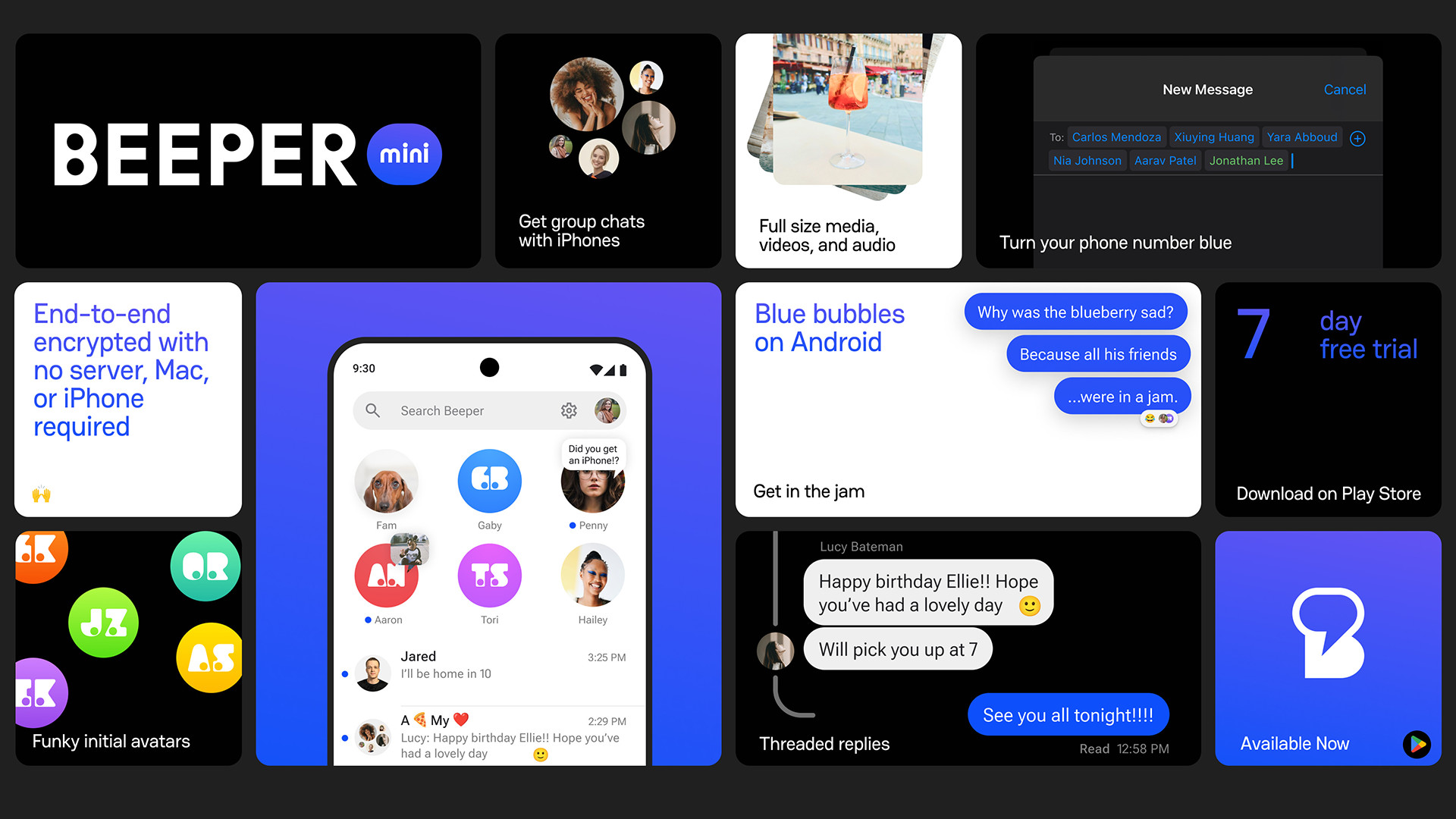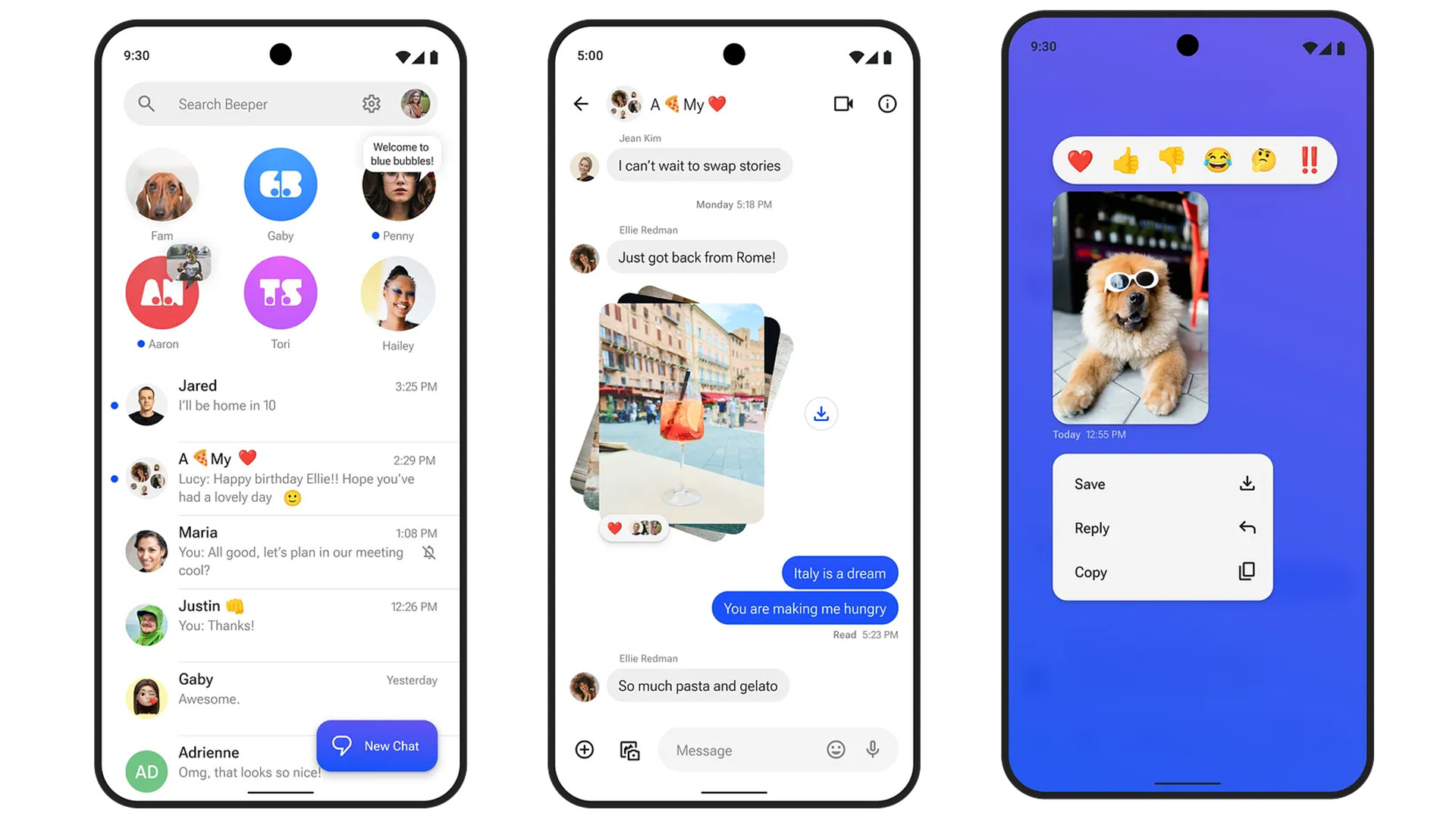Beeper Mini gives Android users a way to talk to iMessage on iOS right now
You won't have to wait until next year for Apple's update

Sign up for breaking news, reviews, opinion, top tech deals, and more.
You are now subscribed
Your newsletter sign-up was successful
In November, Apple announced it will finally support the RCS messaging standard allowing Android devices and iPhones to communicate on a potentially more level playing field. The update won’t arrive until early 2024, but luckily there is a third-party solution that you can download today called Beeper Mini.
The app gives Android users the ability to send end-to-end encrypted texts to an iPhone using Apple’s very own iMessage protocol. This means both parties will see all messages in blue bubbles instead of forcing Android hardware to green bubbles. You don’t need an Apple ID to use the service. Even if you had one, the developer Beeper says it doesn't have access to your Apple account. Users will, however, need to give Beeper Mini permission to access their phone’s SMS and Call Logs to verify the number as well as sync to pre-existing conversations to convert them into proper iMessage chats.

Looking at the official Google Play Store listing, you’ll find Beeper Mini has a multitude of iMessage features. You'll be able to send full-sized photographs and videos to others as well as react to their content with an emoji. The app also allows you to join previously inaccessible iPhone-only group chats. Plus, the software offers a way to sync iMessages across other “Android or iOS devices, including” iPads.
Other notable features include typing status, read receipts, unsending, and more. Beeper Mini is available for download now. You will need to pay $1.99 to use the service although the developer is offering a seven-day free trial to start.
How it works
You may be wondering how is this even possible. It’s complicated to say the least.
The way it works, according to an official blog post, is that an SMS text is sent from an Android number to Apple’s “Gateway service.” The gateway then responds with its own message and sends the initial text to Apple servers registering it as an iPhone. This process was made possible by security researcher and reported high school student JJTech who reportedly managed to “reverse engineer” iMessage’s protocol. Beeper took JJTech’s work (presumably with their permission) and then implemented it in their app.
The developer also created the Beeper Push Notification service, or BPNs for short, to maintain a constant connection to Apple servers and to tell you of any new texts.
Sign up for breaking news, reviews, opinion, top tech deals, and more.
That’s the gist of how it works. If you want more details, we highly recommend reading Beeper’s post along with JJTech’s iMessage breakdown to get the full picture.
Analysis: Potential trouble
Now you may be wondering, is Apple okay with this? It's tough to say. Things are a little weird right now.
Eric Migicovsky, CEO of Beeper, told TechCrunch a provision in the Digital Millennium Copyright Act states that “reverse engineering for the purposes of interoperability is protected”, implying that the law protects them from litigation.
This hasn’t stopped Apple from suing other companies using their services. However, now we have the Digital Markets Act which forces tech corporations to support interoperability for their messaging platforms. What’s more, the US DOJ (Department of Justice) has been going after titans in the industry over alleged antitrust violations. Right now, it’s going after Google.
Apple might let Beeper Mini slide on by to stay in the good graces of the DOJ. But it’s hard to say for sure. We’re in uncharted territory here. Apple could, at any time, strike down the app with the force of a thousand suns. It’ll be interesting to see how this situation plays out.
Be sure to check out TechRadar's list of the best Android phones for 2023.
You might also like

Cesar Cadenas has been writing about the tech industry for several years now specializing in consumer electronics, entertainment devices, Windows, and the gaming industry. But he’s also passionate about smartphones, GPUs, and cybersecurity.